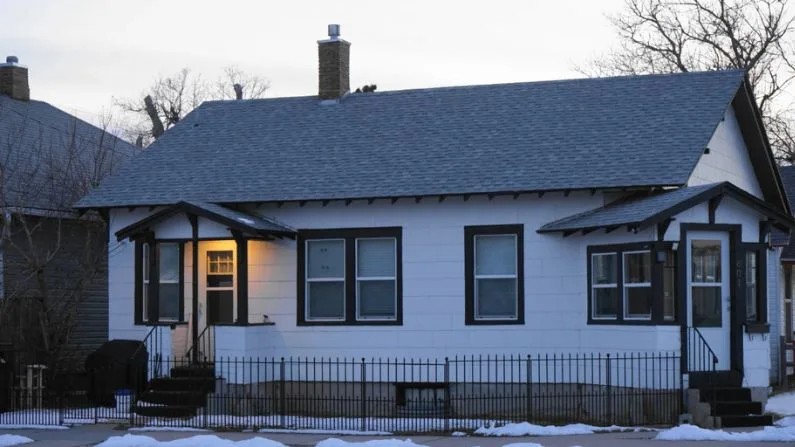Wyomingites watched the value of their homes climb ever higher during the pandemic — and they haven’t fallen, especially in Teton County. In response to this mounting crisis, lawmakers pushed for property tax reform during this year’s Legislative budget session.
On Thursday, Gov. Mark Gordon signed some of these bills into law, but took issue with others. The new laws will provide relief for seniors who are longtime homeowners in the state, put a cap on property tax increases and double exemptions for veterans.
However, Gordon pushed back against bills which could have impacted people with higher incomes, arguing they extended relief “a bit too far.”
“I am committed to working with the Legislature to redress any areas where collectively we may have missed the mark, understanding none of us appreciate paying taxes,” Gordon wrote.
Ahead of the governor’s announcement, KHOL’s David Dudley spoke with Representative Liz Storer (D-Jackson) about the property tax measures.
“I think everyone should realize that we’re trying to strike a balance,” Storer said.
They start out talking about House Bill 3, which provides an up to 50% property tax exemption for long-time homeowners and has now become law.
Editor’s Note: This interview was edited for clarity and brevity.
Liz Storer: [House Bill 3] will be exceedingly meaningful for people in my community [Teton County]. Our median property tax for this year, in Teton County, is over $11,000. That’s more than four times what any other county has. So this is a meaningful reduction in taxes for folks in Teton, especially.
So an $11,000 [tax] bill would be $5,500 or so. I believe [the age cutoff] is 65 years or older. I’m sorry to say that I actually will qualify [laughs]. I’ll decide [whether to apply]. You will have to apply for it. It won’t come automatically.
In House Bill 4, I brought an idea to the revenue committee to expand the refund program modestly. And there’s $20 million in the governor’s budget for that. Around 9,000 applicants received refunds through that program this year, and we expect that to grow. There’s actually a significant number of people in the state who are eligible for that program who have not applied. And I would encourage them to do so if they’re struggling to pay their property tax. We don’t know everything about everyone in the state. But looking at what we can estimate, or income levels, that on average, about 10% of the people that could be eligible are using the program. So, if you’re struggling, it’s a great program. It’s still the best program we have, and the most constitutional [laughs].
[Since this interview, Gordon vetoed part of this bill, removing the highest income category from the program.
“The bill that came to my desk starts to move beyond the goal of targeted relief perhaps in a sign of election year exuberance,” Gordon wrote in his letter explaining his decision. He also expressed concern that the $20,000 appropriated to the Legislature for this kind of relief would be insufficient if the highest income category was included.]
David Dudley: How does it feel whenever you’re presenting your ideas, and folks are kind of pushing back?
LS: So the pushback was on Senate File 54. SF 54 is the idea that in the next year, we are going to provide across the board property tax exemption. That will be a percentage of your residential structure value. We can do that more easily than your entire property.
We’re still debating how to actually structure that exemption. I came up with an idea that allows for people in my community, who do have these higher home values, even though they’re middle class. They’re middle class properties, frankly … they’re worth between $1 and $3 million in many cases. So I wanted a way to make sure that everyone across the state got something. But the exemption was proportional to the amount of tax you paid. So we changed it from a strict dollar figure to a percentage, and then I limited the total amount of fair market value that the exemption can apply to. That will reduce the meaningfulness for very high end properties. And it will also cover second homes, it’s getting applied across the board. So those folks are the folks that least need a reduction in their property taxes since they own more than one home, in many cases. And their home in Teton County may be a second home, and it may be a $10 million home. So they’ll get a little bit back but not too much.
[Gordon also vetoed this bill, saying it represented “a socialistic type of wealth transfer, mostly from the energy sector, to Wyoming homeowners” and arguing it would jeopardize the financial stability of the state and counties.]
DD: And then that transitions us into House Bill 45. How do you feel about it?
LS: House Bill 45 [now passed by the governor] is a cap bill. It will cap the increase in property values that are driving these high property taxes. So I think we’ve probably agreed on 4% as the total that a property can increase in one year, that the value of it can increase in one year. And while I think it’s problematic, it’s something I voted for, because it was the only way that we can address these double digit increases that are continuing to take place in the northwest part of the state.
DD: And I know that over the past, what, three to five years? These values have been climbing. But are we thinking that these values are going to hold over the next five years? Ten years?
LS: I think it’s good to think about it. I do think this has been a pandemic bubble. We’ve seen property taxes go up on average, across the state in the last three years, 57%. In some parts of the state, like Teton and Lincoln County, they’ve actually doubled in that period of time. The CREG report [Wyoming’s state budget forecast] indicates that this has been a bubble, and it’s more likely that we’ll see single digit property tax increases this year in most places in the state. I am worried that the demand for properties in Teton County is driven, frankly, by other forces, by a global demand. And that will probably continue to increase our taxes at a significant rate. We’ll just have to see. I can’t predict the future.
DD: When you say a global demand, what do you mean?
LS: Oh, because a lot of people think Teton County is a great place to live — at least part of the time, part of the year. You can now fly into Jackson Hole from a lot of places, which also makes that much more desirable. And people love the mountains, they love the summers, they love the wildlife. And as a result, the demand for our property is still pretty hot. We’re seeing prices taper off. I think in other parts of the state, there’s already anecdotal information that property values are going down even.
I think everyone should realize that we’re trying to strike a balance. We’re recognizing that we’re trying to save money because we invest money. And if we invest these funds that the state has, we can keep taxes low. But we also need to pay for services. And we are giving people their money back in the form of services at the county at the state level. And I think people don’t always understand that. What they’re getting and what it costs.
This reporting was made possible by a grant from the Corporation For Public Broadcasting, supporting state government coverage in the state. Wyoming Public Media and Jackson Hole Community Radio are partnering to cover state issues both on air and online.
Additional reporting for this story comes from Hanna Merzbach.





